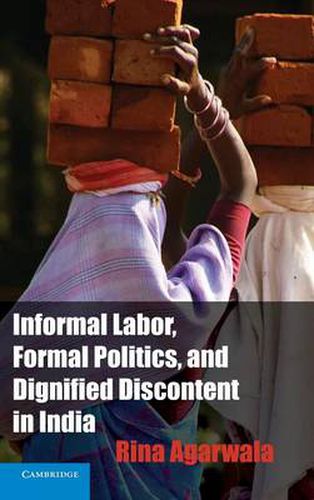Readings Newsletter
Become a Readings Member to make your shopping experience even easier.
Sign in or sign up for free!
You’re not far away from qualifying for FREE standard shipping within Australia
You’ve qualified for FREE standard shipping within Australia
The cart is loading…






Since the 1980s, the world’s governments have decreased state welfare and thus increased the number of unprotected ‘informal’ or ‘precarious’ workers. As a result, more and more workers do not receive secure wages or benefits from either employers or the state. This book offers a fresh and provocative look into the alternative social movements informal workers in India are launching. It also offers a unique analysis of the conditions under which these movements succeed or fail. Drawing from 300 interviews with informal workers, government officials and union leaders, Rina Agarwala argues that Indian informal workers are using their power as voters to demand welfare benefits from the state, rather than demanding traditional work benefits from employers. In addition, they are organizing at the neighborhood level, rather than the shop floor, and appealing to ‘citizenship’, rather than labor rights.
$9.00 standard shipping within Australia
FREE standard shipping within Australia for orders over $100.00
Express & International shipping calculated at checkout
Since the 1980s, the world’s governments have decreased state welfare and thus increased the number of unprotected ‘informal’ or ‘precarious’ workers. As a result, more and more workers do not receive secure wages or benefits from either employers or the state. This book offers a fresh and provocative look into the alternative social movements informal workers in India are launching. It also offers a unique analysis of the conditions under which these movements succeed or fail. Drawing from 300 interviews with informal workers, government officials and union leaders, Rina Agarwala argues that Indian informal workers are using their power as voters to demand welfare benefits from the state, rather than demanding traditional work benefits from employers. In addition, they are organizing at the neighborhood level, rather than the shop floor, and appealing to ‘citizenship’, rather than labor rights.